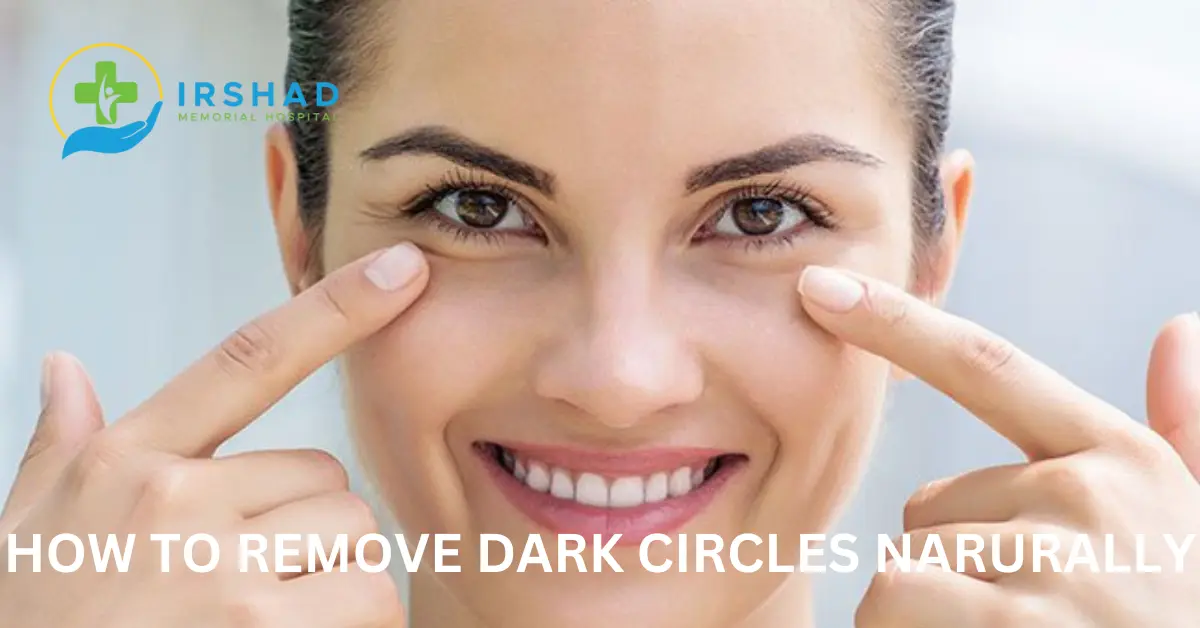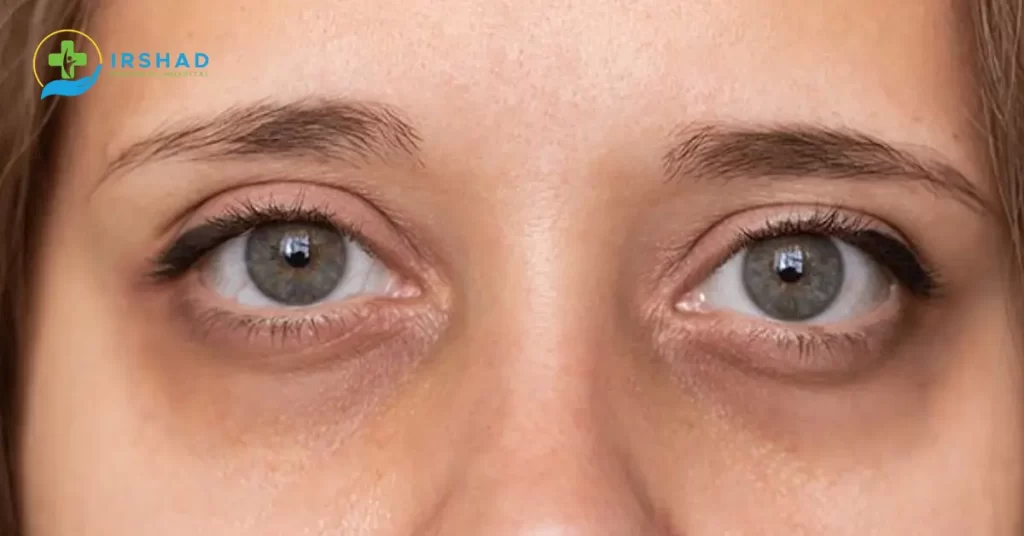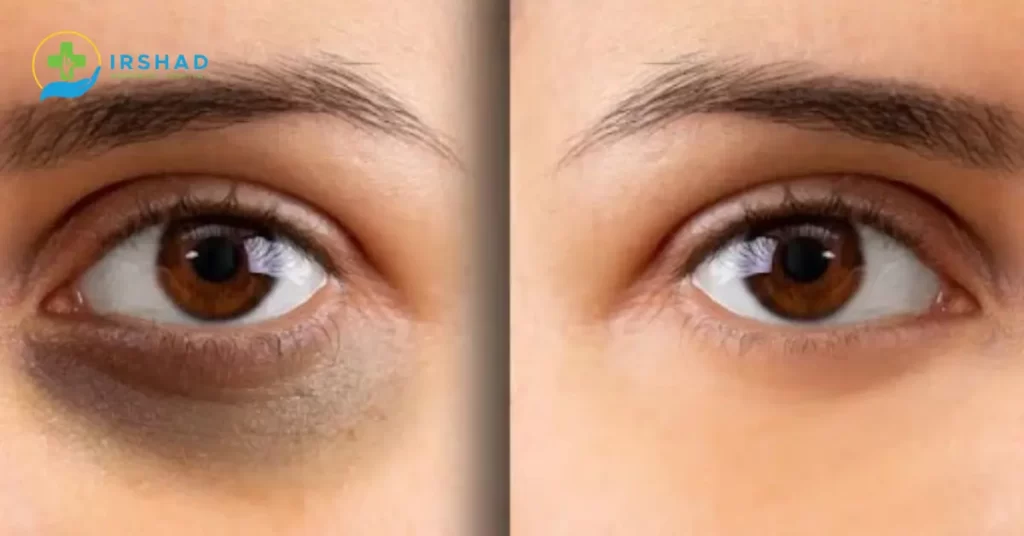
Combatting dark circles naturally involves adopting simple yet effective practices. From ensuring sufficient sleep to maintaining a balanced diet, these lifestyle changes can make a noticeable difference in reducing and preventing dark circles. Natural remedies like cold compresses and the application of vitamin-rich ingredients contribute to skin health. Sun protection and stress management also play pivotal roles. In this guide, we’ll explore practical and sustainable ways to stop dark circles naturally. By incorporating these habits into your routine, you can promote overall skin well-being and enhance the appearance of the delicate skin around your eyes. Let’s delve into these natural solutions to bid farewell to dark circles and welcome a refreshed and revitalized look.
Who do dark circles under the eyes affect
Dark circles under the eyes can affect anyone, regardless of age, gender, or ethnicity. They are commonly associated with factors such as lack of sleep, stress, and genetics. Insufficient sleep can lead to blood vessels dilating, causing the skin to appear darker. Stress and fatigue contribute to the breakdown of collagen, resulting in a tired and aged look. Additionally, genetic predisposition can make some individuals more prone to developing dark circles. Allergies, dehydration, and sun exposure are also contributing factors. While dark circles are generally harmless, they can impact a person’s self-esteem. Maintaining a healthy lifestyle, including proper sleep, stress management, and hydration, can help minimize their appearance. If persistent or severe, consulting with a healthcare professional is advisable to rule out underlying health issues.
What can I do at home to treat dark circles under my eyes

To address dark circles at home, adopt a few simple remedies. Ensure you get adequate sleep, aiming for 7-9 hours nightly, as insufficient rest can contribute to dark circles. Stay hydrated by drinking plenty of water throughout the day to maintain skin elasticity. Apply cold compresses, like chilled cucumber slices or tea bags, to reduce puffiness and constrict blood vessels. Use a good-quality, hypoallergenic moisturizer to keep the skin around your eyes hydrated. Incorporate a healthy diet rich in vitamins C and K, and consider using a gentle, fragrance-free concealer for temporary coverage. Protect your eyes from sun exposure by wearing sunglasses and applying sunscreen. If dark circles persist, consult with a dermatologist or healthcare professional for personalized advice.
What medical treatment options are available to treat dark circles under the eyes
Medical treatments for dark circles under the eyes include topical creams containing ingredients like retinol, vitamin C, and kojic acid, which can help reduce pigmentation and improve skin texture. Dermatologists may also recommend prescription-strength retinoids for more severe cases. Procedures such as laser therapy can target blood vessels and stimulate collagen production, reducing dark circles. Injectable fillers, like hyaluronic acid, can be used to fill in hollow areas and provide a smoother appearance. In some cases, chemical peels may help improve skin tone. However, it’s crucial to consult with a healthcare professional to determine the most suitable treatment based on the underlying cause of the dark circles.
How can dark circles under my eyes be prevented
Preventing dark circles involves adopting healthy habits. Ensure you get enough quality sleep, aiming for 7-9 hours nightly, to avoid fatigue-related skin discoloration. Stay hydrated by drinking ample water throughout the day, maintaining skin elasticity. Manage stress through relaxation techniques, as stress can contribute to dark circles. Protect your eyes from the sun by wearing sunglasses and applying sunscreen to prevent sun damage. Maintain a balanced diet rich in vitamins C and K, which promote skin health and reduce pigmentation. Use a hypoallergenic moisturizer to keep the delicate skin around your eyes hydrated. Avoid excessive rubbing and tugging of the eyes, as this can worsen dark circles. Implementing these lifestyle changes can contribute to preventing and minimizing the appearance of dark circles under your eyes.
When should I call my healthcare provider
Contact your healthcare provider if you notice persistent or worsening dark circles under your eyes, especially if accompanied by other concerning symptoms. Seek medical advice if the dark circles are sudden, severe, or associated with pain, swelling, or changes in vision. If you’ve tried at-home remedies without improvement or if dark circles are affecting your daily life and self-esteem, consult a healthcare professional for personalized guidance. Additionally, if you have underlying health conditions like allergies or skin disorders, it’s essential to discuss your concerns with a healthcare provider who can address the root cause. Timely communication with your healthcare provider ensures appropriate evaluation and guidance for effective management of any underlying issues contributing to dark circles.
Why does my baby or child have dark circles under their eyes
Dark circles under a baby or child’s eyes can result from various factors. Lack of sleep is a common contributor, so ensuring your child gets adequate rest is crucial. Allergies, such as to pollen, dust, or certain foods, can also cause dark circles. Genetics may play a role, as some children may inherit a tendency for under-eye pigmentation. Nasal congestion, often associated with colds or allergies, can lead to dark circles due to disrupted sleep and increased blood flow. Dehydration is another potential factor, so make sure your child stays well-hydrated. If you’re concerned about persistent or severe dark circles, consult with a pediatrician to rule out any underlying health issues and receive appropriate guidance for your child’s well-being.
Can vitamin E actually treat dark circles
While vitamin E is known for its antioxidant properties and ability to nourish the skin, there is limited scientific evidence directly supporting its effectiveness in treating dark circles. Vitamin E may contribute to overall skin health and help with moisturization, but its impact on pigmentation or blood vessel-related dark circles is not well-established. Other ingredients like vitamin C, retinol, and kojic acid are often more specifically recommended for addressing discoloration. If you consider using vitamin E for dark circles, it’s advisable to consult with a dermatologist for personalized advice. Remember, lifestyle factors such as proper sleep, hydration, and a balanced diet also play significant roles in maintaining healthy skin and minimizing the appearance of dark circles.
How to use vitamin E for dark circles
To use vitamin E for dark circles, you can incorporate it into your skincare routine with the following steps:
- Vitamin E Oil or Cream:
- Choose a high-quality vitamin E oil or cream. You can find products specifically formulated for the delicate skin around the eyes.
- Apply a small amount of vitamin E oil or cream to the dark circles using your ring finger. Gently pat the product onto the skin, avoiding direct contact with the eyes.
- DIY Vitamin E Mask:
- Mix a few drops of vitamin E oil with a carrier oil like almond or jojoba oil.
- Apply the mixture to the dark circles and leave it on for about 15-20 minutes.
- Gently wipe off any excess with a soft cloth or tissue.
- Vitamin E Capsules:
- If using vitamin E capsules, puncture one capsule and extract the oil.
- Apply the oil to the dark circles, massaging it gently into the skin.
Remember to perform a patch test before applying vitamin E to ensure you don’t have any adverse reactions. Consistency is key, but if you don’t see improvement or experience irritation, consider consulting a dermatologist for personalized advice.
How do dermatologists treat dark circles under the eyes

Dermatologists employ various treatments for dark circles under the eyes, depending on the underlying causes. Here are some common approaches:
- Topical Treatments:
- Retinoid Creams: Enhance collagen production and skin texture.
- Vitamin C Serums: Lighten pigmentation and boost collagen.
- Prescription Lightening Agents: Such as hydroquinone, for targeted pigmentation reduction.
- Medical Procedures:
- Chemical Peels: Remove outer skin layers, improving pigmentation and texture.
- Laser Therapy: Targets blood vessels or pigment for reduced discoloration.
- Dermal Fillers: Add volume to hollow areas, diminishing the appearance of dark circles.
- Microneedling: Stimulates collagen production, improving skin texture.
- Surgical Interventions:
- Blepharoplasty: Surgical eyelid procedure to address excess skin and fat contributing to dark circles.
- Skincare Recommendations:
- Sun Protection: Advising on the use of sunscreen to prevent UV-induced damage.
- Moisturizers: Recommending suitable products to maintain skin hydration.
- Avoiding Irritants: Suggesting hypoallergenic skincare products and discouraging rubbing the eyes.
- Lifestyle Advice:
- Adequate Sleep: Stressing the importance of quality sleep.
- Hydration: Emphasizing the role of proper hydration for skin health.
- Balanced Diet: Recommending a diet rich in vitamins K and C.
- Home Care Tips:
- Cold Compresses: Advising on the use of cold compresses to reduce puffiness.
- Tea Bags or Cucumber Slices: Suggesting natural remedies for soothing effects.
It’s crucial to consult with a dermatologist for an accurate diagnosis and personalized treatment plan tailored to individual needs.
Finally, Treat Dark Circles Naturally by making it a point to
Treat dark circles naturally by incorporating healthy lifestyle habits:
- Adequate Sleep:
Ensure you get 7-9 hours of quality sleep each night to promote skin rejuvenation and reduce fatigue-related dark circles. - Hydration:
Drink plenty of water throughout the day to keep your skin hydrated and maintain elasticity. - Balanced Diet:
Consume a nutrient-rich diet with vitamins C and K, found in fruits, vegetables, and leafy greens, to support skin health. - Cold Compress:
Apply cold compresses like cucumber slices or chilled tea bags to reduce puffiness and constrict blood vessels. - Sun Protection:
Wear sunglasses and use sunscreen to protect the delicate skin around your eyes from sun damage. - Stress Management:
Practice stress-reducing activities such as meditation, yoga, or deep breathing to minimize stress-related dark circles. - Gentle Skincare:
Use a hypoallergenic moisturizer and avoid rubbing or tugging at the delicate skin around your eyes.
Consistency in these practices can contribute to naturally treating and preventing dark circles. If concerns persist, seek advice from a healthcare professional or dermatologist.

